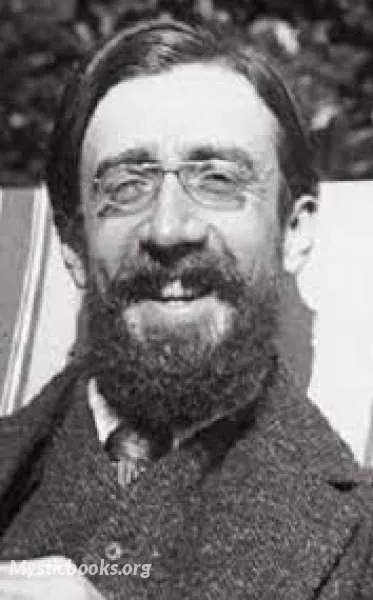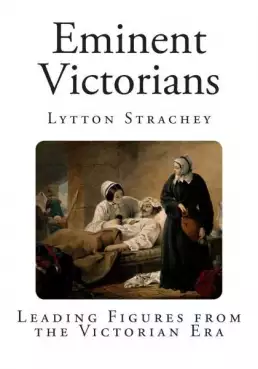
Timeline
Title
Country/Nationality
Lytton Strachey
Giles Lytton Strachey (1880-1932) was an English biographer and critic known for his satire of the Victorian Era.
Lytton Strachey was born in London on March 1, 1880. He was the eleventh of thirteen children of an upper-middle-class family. His father, Sir Richard Strachey, was a colonial Indian civil servant and civil engineer and a British army general; he was a typical Victorian explorer/ scientist. Sir Richard's second wife, Lytton's mother, was the daughter of Sir J. P. Grant of Rothiemurchus and was keen on French literature; she influenced Lytton's precocious literary talent. Even though Lytton's family members on both sides were well-connected and prosperous, the large parental home in unfashionable Bayswater was "suffocating" to him. He was a spoiled child, of frail health, and always withdrawn. Even so, he had an iron will and sat in cultural judgment of the world his parents inhabited: the Victorian era.
For primary education Strachey went to uncongenial upper-class boarding schools in Derbyshire and to Leamington College. He left the "petticoat world of Victorian schoolrooms" for Liverpool University in 1897, where Professor Walter Raleigh, his tutor in history and literature, was the main object of Lytton's hero worship. He began a new six-year phase of his life at Cambridge: the world suddenly opened up in 1899.
It was at Trinity College, and later at King's College, that he met most of his intellectual friends, among them the philosopher G. E. Moore (1873-1958), the economist John Maynard Keynes (1883-1946), the novelist E. M. Forster (1879-1970), the critic and publisher Leonard Woolf (1880-1969), and the art critic Clive Bell (1881-1964). As Cambridge undergraduates they were privileged to join a society called "The Apostles", an elite, exotic group devoted to the arts and an ambivalent way of life in which traditional wisdom and customary middle-class morals were discarded, especially where sex was concerned. The Apostles were personally affected by the philosophy of G. E. Moore. Lytton Strachey saw in Moore's doctrines the importance of aesthetic experience and the gospel of personal friendship. These were the attributes of the "good life." But "friendship" meant, for Strachey, homosexual love. He turned a blind eye to Moore's inherent puritanism. Strachey and Maynard Keynes were often furiously in love with the same male students, and often Keynes won the upper hand.
After partly failing in Cambridge (with a second-class degree and no fellowship at Trinity), Strachey went to London to endure 13 years of penny-pinching frustration as a weekly reviewer for the Spectator, edited by his pedigreed cousin. He fell in with the Bloomsbury Group, the same sort of society in London as the Cambridge Apostles (their leading members were the same). One of the leading "Bloomsberries" was the "stream of consciousness" novelist Virginia Woolf (1882-1941), the sister of Vanessa Bell. Lytton had previously proposed marriage to Virginia (which he did not mean), but she had turned him down. Of all the Bloomsberries, Strachey took precedence (for instance, the Bloomsbury Group began to decline after his own death in 1932).
In 1912 Strachey published his first book, on French literary history, Landmarks in French Literature, designed to awaken English readers to the charms of Racine and French classics. Two years later, World War I broke out. The war was a direct challenge, as Lytton saw it, to Bloomsbury pacifist principles. He managed to be a "conscientious objector" to the war. To the standard question; "If a German soldier tried to rape your sister, what would you do?" Strachey slyly replied; "I would try to interpose my own body." The war was of no consequence to Lytton's endless "partying" in country houses, nor to his writing schedule. He published his major book, Eminent Victorians, in 1918.
"Eminent" in the book's title was satirical. The themes, common to the four biographical sketches of the volume, were the sacred icons of Victorian sentiment: patriotic fervor and Christian messianic zeal, the ideal of the "public" school, and humanitarianism, as opposed to what Strachey thought were the perils of upper-class education, self-interested do-goodism, and, above all, the sins of Victorian imperialism. The four objects of Strachey's satire were Cardinal H. E. Manning, formerly a prominent Anglican member of the Oxford Movement, converted to Catholicism in 1851; Florence Nightingale, the "Lady with the Lamp," a founder of nursing and active with the wounded in the Crimean War; Thomas Arnold of Rugby School; and General C. G. "Chinese" Gordon, the pious hero killed by Mahdi raiders in the siege of Khartoum in 1885.
Strachey's book of polemical essays caused a popular sensation. Almost instantly the postwar era plunged into "anti-Victorianism." The war-weary generation wanted to hear this wholesale assault on past idols. But in his next book, Queen Victoria (1921), Strachey was seduced by his subject. "Mordant irony" was replaced by grudging respect for the queen, even though Strachey felt himself amused by her antics. Seven years later he produced Elizabeth and Essex (1928), a book full of vulgarized Freudianism that tampered with actual Tudor history. Strachey was not a historical revisionist; for that he would have to have been a scholar. He was rather an artist with words.
His biographical creed was to paint a picture of the person from the author's viewpoint—never mind the scholarly inhibitions, never mind the search to find "the truth" of any human situation so far as is possible. He had a "laughing admiration" for the satirists of the 18th century, like Voltaire (1694-1778). He saw religion as Voltaire saw it, as a "ludicrous anachronism." Careers in public service were mainly full of political intrigue. But human relationships were the nexus of life itself. Strachey eschewed the standard "two fat volumes" of Victorian biographies (he saw these tomes as "hagiographies": treatment of the illustrious dead). He favored for himself brief biographies, the art of which rested on the subject's motive and personality as he saw it.
Strachey was fairly tall and excessively thin, with a disguising rust beard and a shrill voice. He wore bookworm spectacles. He had an air of sick, melancholic sadness; he sagged. With true friends he was quick of mind, caustic, and conspicuously, bitingly witty. In addition, he was overtly, ardently homosexual. The conspiracy of public silence by which the Apostles, Bloomsbury Group, and other circles in England kept hidden from the world their sexual proclivities is yet to be studied. Strachey's painstaking biographer, Michael Holroyd, revealed the Strachey letters, laying it all out in two volumes in 1967 and 1968 ("two fat volumes," as Strachey would have said). The Bloomsberries would "jump from sex to sex in making love."
The decline of Strachey's reputation came soon after his death. The humbug of the "eminent" Victorians was an easy target for Strachey to satirize, but it led critics to accuse him of caricature. It is hard for the satirist not to treat the world and its problems as pure comedy. There was an element of theater, of almost pantomime, in Strachey's treatment of the Victorians. One critic in 1931 isolated one word, "preposterous," which Strachey used over and over again, about his stick-figure characters. Leonard Woolf (1960) was on target, when he described the critic as "a strange character."
Irony is one thing; but it conceals too much from the author himself. Strachey was one of the literary influences that partly destroyed the ghost of the Victorian era in the 1920s.
Strachey died of cancer on January 21, 1932, surrounded by his friends, at Ham Spray House, Hungerford. Carrington committed suicide immediately after his death.
Books by Lytton Strachey

Eminent Victorians
Eminent Victorians is a book by Lytton Strachey, first published in 1918 and consisting of biographies of four leading figures from the Victorian era. Its fame rests on the irreverence and wit Strachey brought to bear on three men and a woman who had...